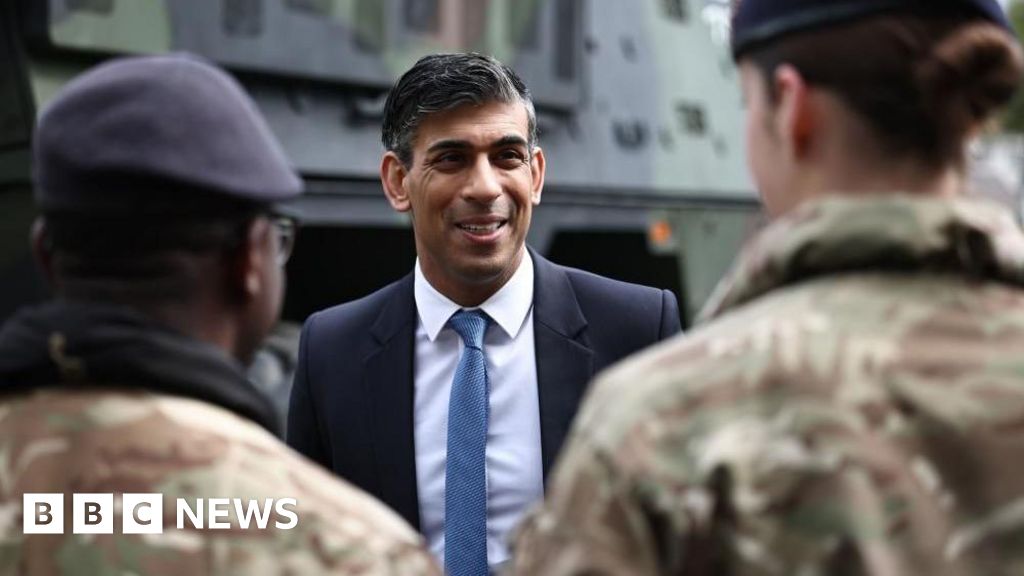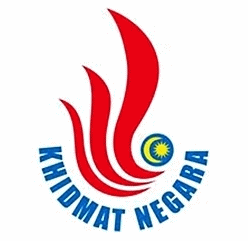Every 18-year-old would choose between joining the military or volunteering one weekend a month in the community.

www.bbc.com
Curious about people's thoughts on this.
AFAIK Germany abolished theirs in 2011 but with rumbings they plan on reinstating it. And it seems most nations in Europe that border Russia still have some form of it. Along with several nations around the world.
It seems like with world events currently it's starting to be viewed more favorable than it was a few years ago.
I personally am a fan of the idea. Though I do acknowledge there are pitfalls with it .
I feel it would be political suicide to impliment it here for any party. Though I think we would be better off as a nation if we did.
Thoughts?
An interesting concept. Right down your alley
@Kirkhill.

And another.

....
History meander....
Edmund Burke speaks of this “patriotism of small things” in his Reflections on the French Revolution. “To be attached to the subdivision, to love the little platoon we belong to in society, is the first principle (the germ as it were) of public affections. It is the first link in the series by which we proceed towards a love to our country, and to mankind.”
Tocqueville's description of associations is an enduring impact of Democracy in America . Tocqueville's extensive analysis of the role associations play in strengthening and moderating democracy are widely cited, and highly influential on the structure of American philanthropy. Tocqueville viewed the proliferation of associations as a unique response that was not only critical to the success of the experiment of democratic government, but also served to provide for the well-being of all of its citizens in accordance with a sense of equality that was previously unknown (Tocqueville 1840).
...
Wolf Cubs, Brownies, Boy Scouts, Girl Guides, Ventures, Sea Scouts, Boys Brigade.
St John's, Red Cross, Candy Stripers
Masons, Knights of Columbus, Shriners, Oddfellows, Rebeccas, Elks, Eagles, Lions, Kiwanis, Kinsmen, Kinettes, Imperial Order of Daughters of the Empire, Rotary, Women's Institute, the Guild
Church Socials, Community Drives, Telethons, United Way,
Parent Teacher Associations, School Boards, Hospital Boards...
....
All of the above were part of the background for those of us of a certain age in Canada and the US and, more broadly, in the English speaking countries. Everybody was a member, or participant in at least one of those organizations and many had multiple associations. One person could belong to a couple of clubs concurrently, or multiple clubs over time, or have family members who held different memberships. Those memberships tied people together across race, religion, age and sex. People got to know each other and learned to look out for each other.
....
To my way of thinking there has been a concerted effort to denigrate and undercut all of those groups and associations, those institutions. One common route to achieve this is to point out that these organizations fail to live up to their principles and that people are people and they act like people.
"We should expect more of them! We should demand more of them!"
Hell no.
We should expect people to be people. Good, bad and ugly. By all means punish the bad, and pity the ugly. But allowing Alinsky to win on point 4 has brought most of our institutions down.
- "Power is not only what you have but what the enemy thinks you have."
- "Never go outside the expertise of your people."
- "Whenever possible go outside the expertise of the enemy."
- "Make the enemy live up to its own book of rules."
- "Ridicule is man's most potent weapon. There is no defense. It is almost impossible to counterattack ridicule. Also it infuriates the opposition, who then react to your advantage."
- "A good tactic is one your people enjoy."
- "A tactic that drags on too long becomes a drag."
- "Keep the pressure on."
- "The threat is usually more terrifying than the thing itself."
- "The major premise for tactics is the development of operations that will maintain a constant pressure upon the opposition."
- "If you push a negative hard and deep enough it will break through into its counterside; this is based on the principle that every positive has its negative."
- "The price of a successful attack is a constructive alternative."
- "Pick the target, freeze it, personalize it, and polarize it."
The Canadian Forces is being given the same treatment given to the Catholic Priests and the Boy Scouts.
There needs to be a forceful contrarian effort. One that fights back an re-legitimizes those community associations, those clubs.
....
I intentionally left government sponsored associations, like Cadets, out of the list. They are top-down organizations that are built to serve the needs of the Government, or the Nation at Large if I am feeling generous. All of the other organizations are bottom-up efforts driven internally by the community.
People used to organize themselves to solve problems. They banded together to buy a fire truck, to bring a doctor into town, to build a two bed hospital and surgery, to hire a teacher. Those were community projects. Not government projects. They were Co-Op and co-operative projects.
Co-operation became a watchword and resulted in ever larger associations of associations. It eventually seemed to make sense to co-operate municipally, provincially, nationally and internationally. At which point you were looking at governmental level co-operation. But we lost local control over fire departments, doctors, hospitals and teachers. The price of not having to attend weekly meetings was authoritarian decrees on services, and curricula, union demands for compensation and voluntary dues and subscriptions became tax demands.
People got used to doing nothing other than bitching about the crap services the government supplies for the ridiculous taxes it demands to pay those bloody civil servants.
The fracturing that occurred became a shattering with Covid when everyone was incarcerated for two years.
Something needs to be done to pull the bits back together. To encourage people, especially youngsters now two and three generations removed from that society of societies that I opened with, to encourage people to get out, and associate and co-operate. There is already an evident demand for that type of association - crowds in the streets are surely evidence. The issue is how to manage those crowds and those impulses. How to direct them to build the community and not to destroy it.
....
National Service....
To most of us National Service connotes one thing - Conscription.
Conscription and being issued a rifle.
If I am understanding what I have read on the UK proposal military service is just one option offered to youngsters. And not all military service would necessarily entail carrying a rifle. Other options include working with other agencies, both governmental and potentially non-governmental. And not all options are full time. I think one option was 25 weekends a year of community service.
I know that in many European countries everybody is registered for conscription, just as the US registered everybody for the draft. The difference between the US Vietnam, UK Korea experience and the European experience is that currently the Europeans are not "hiring" all the people they register. The positions available are considered good jobs and people compete to be down-selected. Nobody is getting thrown into jail for not showing up or disobeying orders. And those that don't like the idea of carrying a rifle have multiple opportunities to support their community in other organizations.
....
The key element is voluntary association and not coercion.
...
From each according to their willingness. To each according to their effort.


